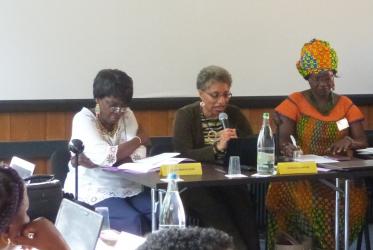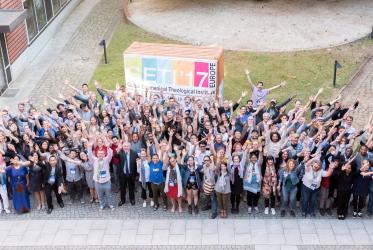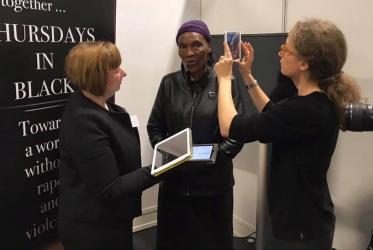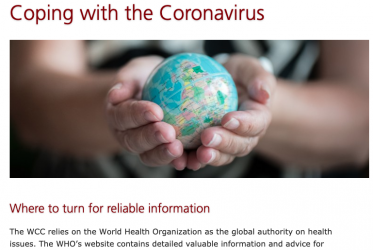Displaying 161 - 180 of 342
16 October 2017
Forum strengthens ecumenical commitment to diakonia
12 October 2017
Former director of the WCC Programme on Theological Education has died
29 September 2017
New study lifts up voices of small farmers in Mozambique
24 August 2017
"We have our work cut out for us"
10 August 2017
A safe space for sinners to change and for pain to be shared
03 August 2017
"Church has huge responsibility empowering women"
26 July 2017
G20 summit: call to pray for peace in Hamburg
07 July 2017
Missional formation for new contexts
15 June 2017
“We are to pass on the mantle”
31 May 2017
















